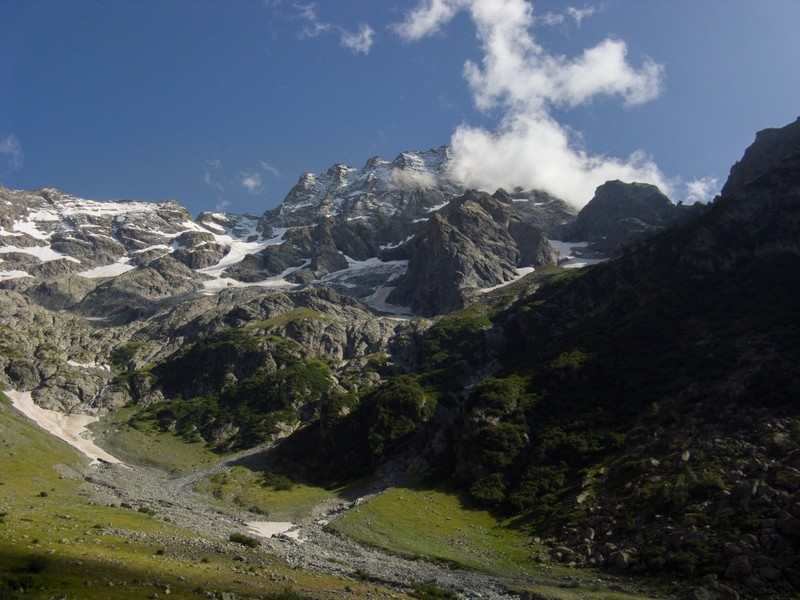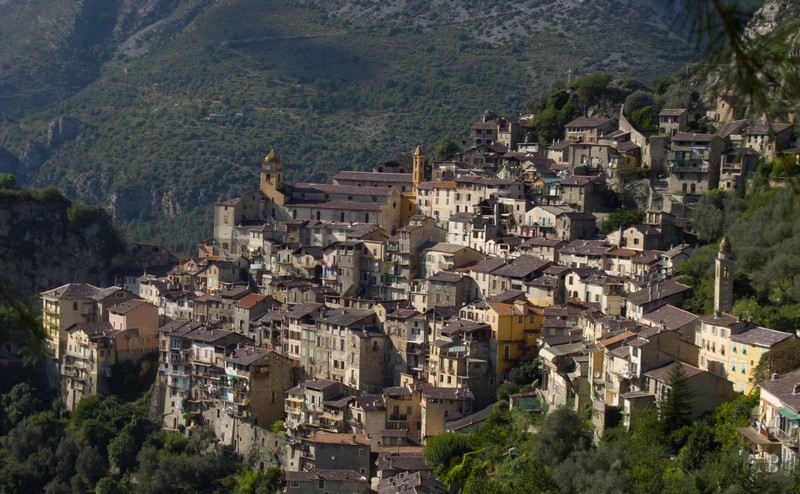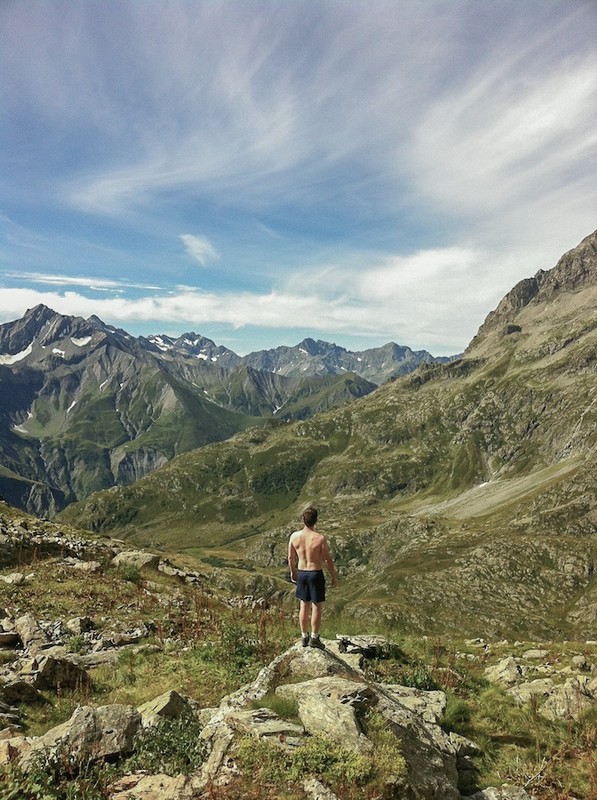
Yesterday I arrived at Ignatis of the Cers, the last village on the road to the Pass Beyond. The name of this rough path in the Silvery range had always made me curious to see it.
The Pass Beyond. Oh, I knew this place was one of many ways to cross the Silvery Frontier. A bridge between windy regions and still lands. Only a few kilometers’ walk to take you from one world to the next. Like any good, progressive explorer, I felt a certain fascination for the Frontier. I almost imagined the gravity inverting on the other side of the mountain range. Led on by burning curiosity, I rode the Fifty-Ninth up to the station of Ignatis of the Cers. The wagons sailed through the valleys as if nothing could stop their wild run. The tracks climbed up the ever-rising slope, laughing all the way. They lunged across the void on great stone arches, giving us the impression we were crossing mountains and crags with utmost ease. When the railroad curved, the train left the mountainside and dove in the hollow of a valley, barely holding onto the aqueduct. My heart skipped a beat when the utter paleness of Spring gave way to the Traverse, the incredible river that runs across entire nations in an almost-uninterrupted flow of waterfalls and floodgates. How wondrous! In the light of dawn, it looked like a long platinum ribbon, embroidered here and there by the mist rising off its surface. At more than 500 meters above ground, the sight from the sail-wagons was breath-taking. I could almost make out its Eastward bend, flooded by sunlight, and with a single step across the car watch it disappear into the mountain-crossed horizon. I felt like a bird, like a god, as the Fifty-Ninth rode suspended in the sky.
The city of Ignatis of the Cers is more of a sprawling village, clinging to the side of the mountain like a tree rooted in granite. Its houses all overlook the Traverse valley below. The air is lively, almost stinging, and the altitude makes the oxigen you breathe in taste like sap, giving you the impression of constantly chewing on red fir needles.

I only stayed one night, having found a little room for a honest price at a small “Traverse Hostel”, of which there are many along the river. I recommend it for the hearty meal it offered. Knowing this would perhaps be the last time I ever dined in a windy region, their stew almost brought tears to my eyes.
But this morning, when the innkeeper woke me up before the break of dawn, all that nostalgia had left me. Oh, to cross that Pass! To walk past the border, to dive into the unknown! My hiking equipment was an insult to the lightness of my heart. I swallowed the tart mountain air like my mother’s milk: voraciously and with no remorse.
The road to the Pass is well-kept, but very difficult to reach without a vehicle. Fortunately, a shepherd let me board his hot-air baloon and so we soared over the thick pinewood to land on the path that leads down to the Pass. I fixed the straps on my backpack, turned on my dactylosphere, and set out for a day of walking across the remains of a dead glacier.
These ancient, departed glaciers are always fascinating. Their ghostly presence still tinges the landscape with blue, even though your feet only touch broken, slippery slabs of slate. The Pass sits between two steep peaks, carved by snow more than wind. You know you’re nearing your destination when the first snow starts gleaming at the corner of your eye. As if ice itself respected the border, it never climbs beyond the middle of the Pass and only builds up on the side of the still lands. Some say the war that ravaged this place for years left enough scars that even the weather now refuses to cross the human frontier. On both sides of the mountain, the landscape evolves independently.

My tired legs carried me to a wild valley, where the air smells of damp grass and heather. The windy firs have disappeared and the slate has turned to a smooth, grey stone that sometimes produces small white crystals.
The descent was much faster than I expected. When I turned back, my mind reeling a little, I saw that a single cloud had ventured on the silvery peak, like a prisoner of the frontier, eternally suspended between the two worlds. Perhaps, being a Linecaster, I had unconsciously applied my art to find some comfort, drawing an invisible thread across to that little cloud to carry it along on my journey. But the frontier had denied me that unwilling companion.
Seized by restless ecstasy, I walked my first steps on the short grass until I reached a low outcropping of rock. I stopped for a moment, realizing the wind had also stayed behind. Only the snow of the Pass cooled down the landscape, which beyond the Pass was utterly wise and wild. A single hawk soared through the blue sky, almost still against an invisible current, its wings leaning on the air as if it was solid. As I spread my arms, I also savored that unknown sensation. My hair fell down on my forehead, my clothes clung onto my skin. I slowly, ceremoniously shed them. Until I could present my almost-naked body to the still, pristine expanse. The overwhelming sweep of space filled my heart. Even now, as I write this down, the feeling still burns in my temples.
I don’t know which way to go now, but the horizon lures me with renewed strength. Heeding its call is becoming an imperious need, in spite of my legs, which are unused to this kind of exertion. I must reach that vanishing point, I feel it pulling me towards itself. Up until now, I have bent the galloping clouds to my command. Am I still a Linecaster in this peaceful expanse? What lines could I ever cast without the wind carrying my hooks?
Have I not become the willing prey of this still horizon?

